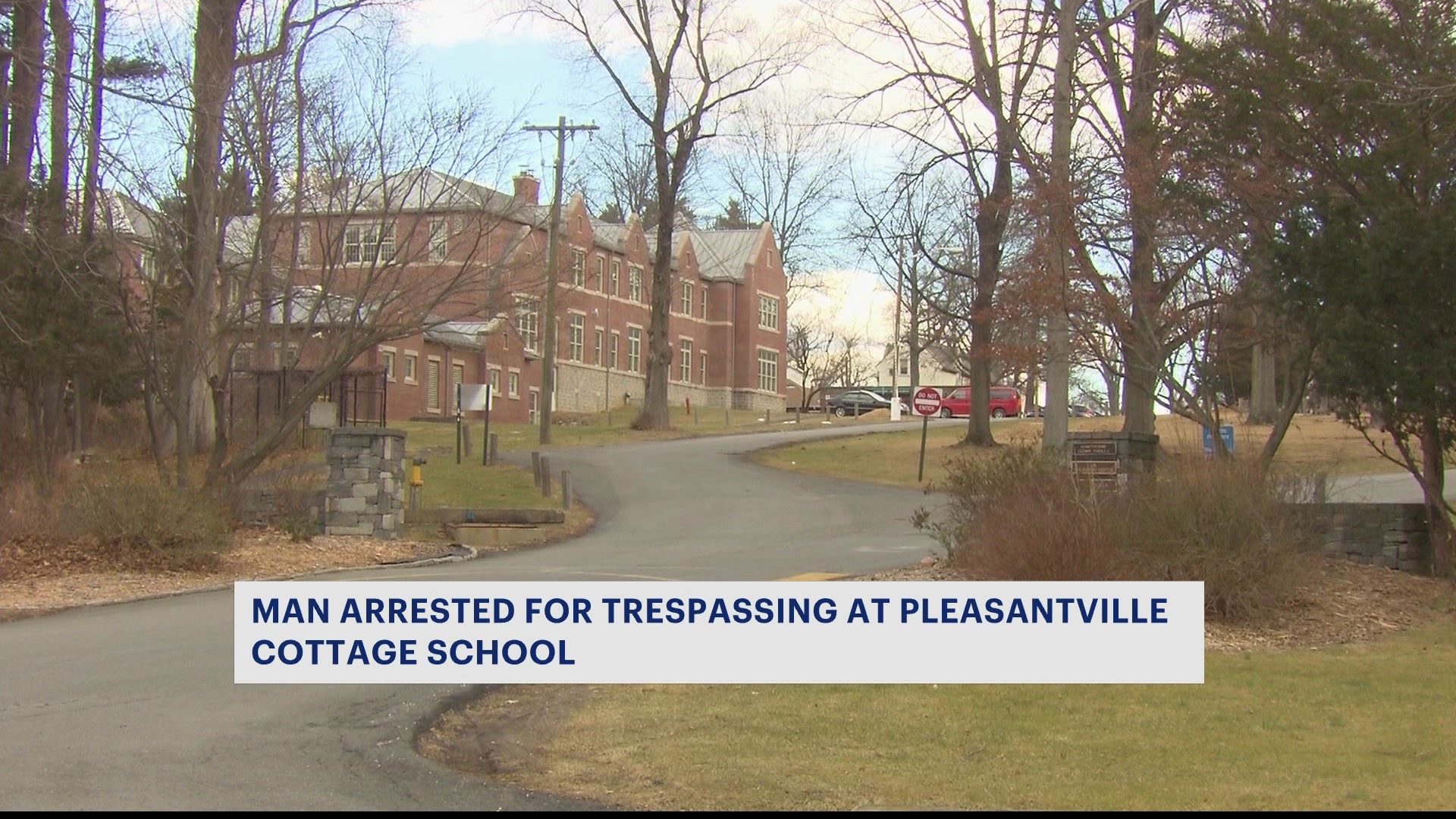When a young person steps onto private property without permission, it's more than just a simple rule break. This act, often called trespassing, can be a sign that a young person is feeling a lot of worry or is going through a rough patch. It's a behavior that can raise many questions for families and communities, so you know, it’s worth taking a closer look.
For many, the word "troubled" describes a state of distress, or maybe a feeling of being upset. As my text suggests, it can mean someone is worried and anxious. This kind of emotional unrest can make a young person act out in ways that seem confusing to others. Trespassing, in this light, isn't just a random choice; it can be a symptom of deeper issues a teen is facing.
Figuring out why a young person might engage in trespassing, and what can be done to help, is a big deal for everyone involved. It’s about seeing past the act itself to the person who is doing it, and pretty much understanding their situation. This article will help shed some light on this tricky topic, giving you some ideas about what might be going on and how to offer support.
Table of Contents
- What Is Troubled Teen Trespassing?
- Why Do Young People Trespass? Understanding the Underlying Reasons
- The Dangers of Trespassing for Young People
- Recognizing the Signs of a Struggling Teen
- How to Help a Young Person Who Trespasses
- Community and School Support
- Frequently Asked Questions
- Moving Forward with Care
What Is Troubled Teen Trespassing?
When we talk about "troubled teen trespassing," we're really looking at two main ideas. First, there's the act of trespassing, which means going onto someone else's land or property without their permission. This can be anything from an empty building to a private field, or even just a backyard. It's basically being somewhere you're not supposed to be, legally speaking.
Then, there's the "troubled" part. As my text explains, a person who is troubled is often worried, anxious, or feeling a state of distress. They might be going through a difficult time, experiencing emotional upheaval, or facing problems that feel too big for them. This adjective describes a state of being characterized by problems, difficulties, or distress, you know, it's a pretty heavy feeling.
So, "troubled teen trespassing" refers to young people who are engaging in unauthorized entry onto private property, and this behavior often comes from a place of emotional unrest or personal difficulty. It’s not just about breaking a rule; it's often a sign that something deeper is going on with the young person, something that needs attention. They might be feeling lost, or maybe just a bit out of place.
Why Do Young People Trespass? Understanding the Underlying Reasons
It's natural to wonder why a young person would choose to trespass. It’s rarely a simple decision, and usually, several things are at play. Often, it's connected to those feelings of being troubled, that sense of worry or difficulty my text describes. There are many reasons, and understanding them can help us offer better support, you know, for the young person.
Seeking Escape and Adventure
Sometimes, young people are looking for a thrill or a way to escape from daily pressures. Life can feel pretty dull or overwhelming, and exploring forbidden places might seem like an exciting way to break free. It's a way to feel a sense of freedom, or perhaps just a little bit of power, which they might not feel in other parts of their lives. This search for something different can lead them to places they shouldn't be, so it's a real draw.
Peer Influence and Belonging
For many young people, fitting in with friends is a big deal. If their friends are doing things like exploring abandoned places or going where they’re not allowed, a young person might join in to feel accepted. The desire to belong can be very strong, and it can sometimes lead to choices that aren't the best. They might feel pressure to prove themselves, or just to be part of the group, which is a powerful motivator for teens.
Emotional Distress and Coping
As my text points out, "troubled" can mean experiencing emotional upheaval. A young person who is feeling worried, anxious, or distressed might use trespassing as a way to cope with those difficult emotions. It could be a way to release stress, to feel something other than their pain, or to simply get away from a difficult home situation. It’s a kind of self-medication, in a way, even if it's not a healthy one.
Lack of Awareness or Boundaries
Some young people might not fully understand the rules about private property or the potential dangers involved. They might not realize the seriousness of trespassing or the legal trouble it can cause. This can happen if they haven't been taught clear boundaries, or if they just don't think about the consequences. It’s a bit like not seeing the whole picture, really.
The Dangers of Trespassing for Young People
While the reasons for trespassing can be complex, the dangers are pretty straightforward. Trespassing is not just a minor offense; it carries real risks for young people, both immediate and long-term. Understanding these dangers is important for anyone trying to help a young person who is engaging in this behavior, you know, to keep them safe.
Legal Consequences
Trespassing is against the law. A young person caught trespassing could face legal trouble, including fines, community service, or even a juvenile record. This record can have a lasting impact on their future, affecting things like college applications or job opportunities. It’s a serious matter, and the consequences can follow them for quite some time, actually.
Physical Risks
Many places where young people trespass, like abandoned buildings, construction sites, or railway tracks, are very dangerous. There could be unstable structures, sharp objects, hazardous materials, or moving vehicles. Accidents can happen very quickly, leading to serious injuries or worse. The risks to their physical safety are very real, and sometimes, you know, they don't even see them coming.
Impact on Future
Beyond legal issues, repeated trespassing can show a pattern of disregard for rules, which can hurt a young person's reputation. It can affect their relationships with family and friends, and how adults in the community see them. This kind of behavior can also make it harder for them to get good opportunities down the road, which is a bit of a shame.
Recognizing the Signs of a Struggling Teen
If a young person is feeling worried or distressed, as my text puts it, they might show certain signs. These signs aren't always obvious, but paying attention can help you figure out if they're going through a tough time. Spotting these indicators early can make a big difference in getting them the help they need, so, you know, it's good to be aware.
- **Changes in mood:** They might seem more irritable, sad, or anxious than usual.
- **Withdrawal:** They might stop spending time with family or friends, or lose interest in activities they once enjoyed.
- **Academic problems:** Their grades might drop, or they might start skipping school.
- **Behavioral changes:** This could include being more rebellious, taking more risks, or, of course, trespassing.
- **Sleep or eating issues:** They might sleep too much or too little, or have changes in their eating habits.
- **Talking about feeling hopeless:** Any talk about feeling sad, worthless, or like there's no way out should be taken seriously.
These signs, on their own, might not mean a young person is troubled, but if you see several of them, or if they last for a while, it’s a good idea to check in. It’s about noticing when things just don’t seem quite right with them, or maybe a little off.
How to Help a Young Person Who Trespasses
Helping a young person who is trespassing means addressing the behavior itself, but also, and perhaps more importantly, the underlying reasons for it. It's about offering support and guidance, not just punishment. This takes patience and a willingness to understand what they are going through, you know, to really connect with them.
Open Communication
Start by talking to them in a calm and open way. Let them know you are concerned, not angry. Ask them what's going on in their life, and listen without judgment. Create a safe space where they feel they can share their worries or difficulties. This is about building trust, and really, just letting them know you are there for them.
Setting Clear Boundaries
It's important to explain why trespassing is dangerous and against the law. Set clear expectations about what is acceptable behavior and what is not. Consequences for breaking rules should be consistent and fair. Young people need to understand the limits, and why those limits exist, so they can make better choices. They need to know where the lines are, basically.
Seeking Professional Guidance
If a young person is showing signs of being deeply troubled, or if their trespassing continues despite your efforts, getting help from a professional is a good idea. A therapist, counselor, or youth worker can provide support and strategies for coping with emotional distress. They can also help the young person develop healthier ways to deal with their feelings. Sometimes, you know, a little outside help makes all the difference.
You can learn more about youth support options on our site, or link to this page for additional resources.
Encouraging Positive Activities
Help them find healthy and engaging ways to spend their time. This could be sports, art, volunteering, or joining clubs that match their interests. Positive activities can give them a sense of purpose, build self-esteem, and provide a healthy outlet for their energy. It's about redirecting their focus towards things that are good for them, and maybe helping them find a passion.
Community and School Support
Families don't have to handle these situations alone. Schools often have counselors or programs designed to help young people who are struggling. Local community centers, youth organizations, and mental health services can also offer valuable support. Working together, we can create a network of care around young people who need it. It’s about everyone pitching in, really, to make a positive impact.
Many communities have programs that focus on prevention and early intervention for young people at risk. These programs might offer mentorship, skill-building workshops, or safe spaces for young people to gather. Getting involved with these kinds of initiatives can be a way to support young people before problems get too big. For example, local youth groups often provide structured activities and a sense of belonging, which can be very helpful for a young person feeling a lot of worry. You can find more information about youth development and support programs from organizations like the Youth.gov website.
Frequently Asked Questions
What are the common reasons a teen might trespass?
Young people might trespass for a few reasons, so it's not just one thing. Often, it's about looking for excitement or a way to escape from boredom or stress. Sometimes, they do it because their friends are doing it, and they want to fit in or feel like part of a group. Other times, it's a way for them to deal with difficult feelings, or maybe they just don't fully understand the rules or the dangers involved. It's often a mix of these things, really.
How serious are the legal consequences for teen trespassing?
The legal consequences for a young person trespassing can be pretty serious, actually. It's a crime, and they could face fines, or even be required to do community service. In some cases, it might lead to a juvenile record, which can make things harder for them later on, like when they apply for college or try to get a job. So, it's definitely not something to take lightly, you know, it has real impacts.
What can parents do if their teen is caught trespassing?
If your young person is caught trespassing, the first thing to do is stay calm and talk to them. Try to understand why they did it, and what might be going on in their life that led to it. Explain the dangers and the legal issues very clearly. Then, it's a good idea to set firm boundaries and consistent consequences. If you think they are truly troubled, consider getting help from a counselor or therapist. It's about guiding them, and helping them learn from the situation, you know, to make better choices next time.
Moving Forward with Care
Addressing troubled teen trespassing is a complex matter, one that needs understanding and a willingness to help. It means looking beyond the act itself to the young person who is struggling, feeling that worry or distress my text mentions. By offering support, clear guidance, and connecting them with helpful resources, we can guide young people toward healthier choices and a brighter future. It's a process that takes time, and you know, a lot of care, but it's worth it for them.



Detail Author:
- Name : Elian Bayer DDS
- Username : greynolds
- Email : mterry@goldner.com
- Birthdate : 2001-03-27
- Address : 119 Darwin Falls Trinityville, PA 56519-1867
- Phone : +1.901.571.1805
- Company : Hagenes and Sons
- Job : Postsecondary Teacher
- Bio : Eum hic odit qui incidunt laudantium. Ut est quis tempore earum veritatis magni saepe omnis. Vel aspernatur odio quod et voluptatum dicta. Ut voluptatem accusantium sint non consequuntur et quo.
Socials
linkedin:
- url : https://linkedin.com/in/trinity_real
- username : trinity_real
- bio : Ea beatae quo non voluptas.
- followers : 2735
- following : 901
facebook:
- url : https://facebook.com/trinity.roob
- username : trinity.roob
- bio : Explicabo rem culpa fuga laboriosam.
- followers : 2326
- following : 2408
tiktok:
- url : https://tiktok.com/@troob
- username : troob
- bio : Delectus voluptas officia enim est et quia. Illo pariatur quis explicabo enim.
- followers : 2463
- following : 1928
twitter:
- url : https://twitter.com/roobt
- username : roobt
- bio : Voluptatem nemo debitis sed temporibus non quaerat alias. Nihil dolor aliquam doloremque omnis atque ut et.
- followers : 4083
- following : 538



























